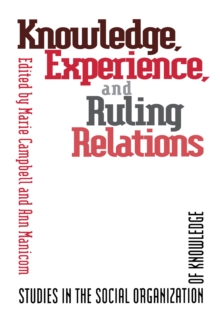
The Control of Infections in Hospitals Paperback / softback
by W. Harding Le Riche, Carolee E. Balcom, Gerald Van Belle
Part of the Heritage series
Paperback / softback
Description
With the mounting public interest in disease, health, physicians, nurses, and hospitals, it is necessary to study problems in the field with a view to constructive improvement.
This report will stimulate constructive change and give support to improvements in individual hospitals.
Based mainly on a detailed questionnaire study of general hospitals in Ontario, it is a practical document, referring to current procedures, which will help administrators, nurses, and physicians to improve infection control in their institutions.
It will be useful, too, in the instruction of nurses and medical students. Because a survey in itself will not produce beneficial change in hospitals, practical suggestions for infection control have been provided in the body of the report and in appendices.
In controversial areas, the authors have made what they considered to be the most reasonable suggestions, but they have not hesitated to record those practices which they believed to be wrong or outdated.
In all cases, they have supported their case by direct observation, quotations from the questionnaires received from hospitals or by views expressed in current technical literature.
Along with the questionnaire survey, which covered 208 hospitals, the authors conducted intensive studies of six institutions of various sizes including in their studies interviews with hospital staff, the writing of a report, and discussion of the report with the hospital administrator.
The promise of complete anonymity ensured that the information received was accurate. In the future, hospitals will be increasingly faced with two serious problems: overcrowding, with too many patients, too many people ministering to these patients, too many people ministering to these patients, and, in all this, too many sources of infection; and a lack of adequately trained staff.
It may be even more difficult to alter the latter set of circumstances than the former, because it is easier to construct more buildings to counter overcrowding than it is to train the multitude of technical people for all the wide reaches of medical science and service.
Realizing this, the author recommend the hospitals be so constructed, staff so trained, and equipment so designed and infection control will be the most efficient possible under conditions of stress and shortage of personnel.
They warn that the unplanned, untested use of mechanical contrivances and procedures could lead to more, rather than less, spread of hospital infection.
Information
-
Available to Order - This title is available to order, with delivery expected within 2 weeks
- Format:Paperback / softback
- Pages:360 pages
- Publisher:University of Toronto Press
- Publication Date:15/12/1966
- Category:
- ISBN:9781487585785
Other Formats
- PDF from £29.74
Information
-
Available to Order - This title is available to order, with delivery expected within 2 weeks
- Format:Paperback / softback
- Pages:360 pages
- Publisher:University of Toronto Press
- Publication Date:15/12/1966
- Category:
- ISBN:9781487585785










